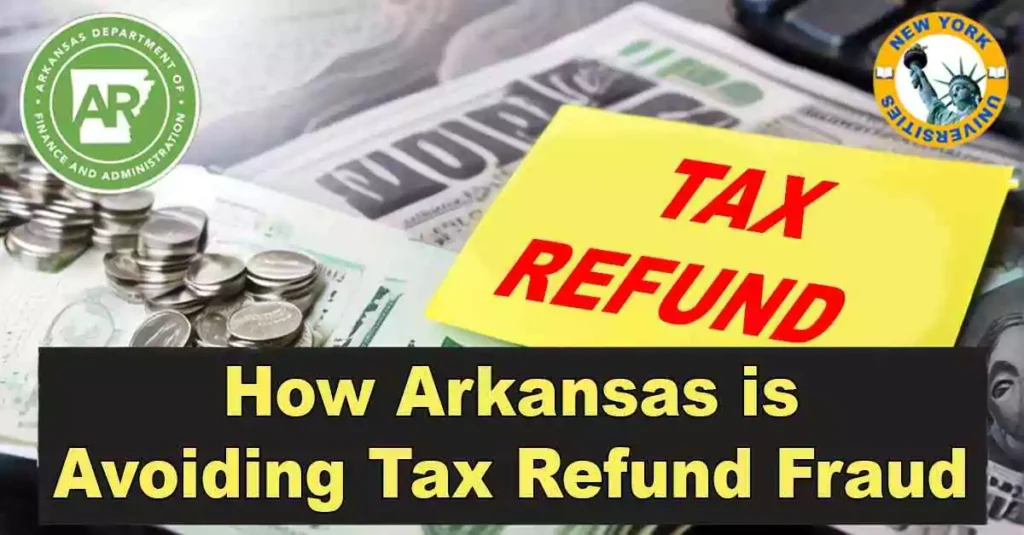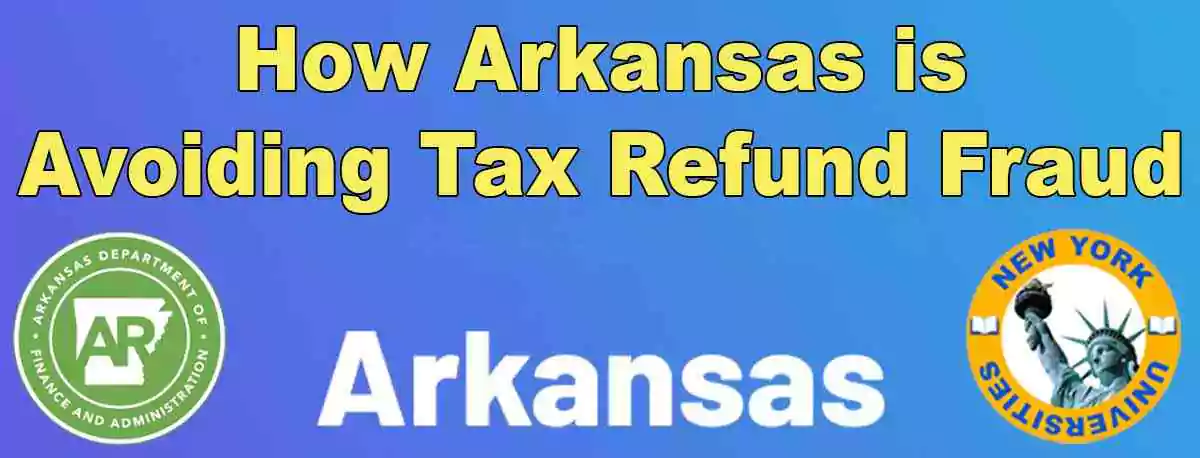Tax season can be a mix of excitement and worry for many people in Arkansas. While getting a tax refund is always something to look forward to, the risk of fraud can create serious problems, like delays or even losing your refund. In this article, we’ll explain how Arkansas is Avoiding Tax Refund Fraud and share simple tips to help you protect yourself.
Importance of Tax Refund.
Filing a tax return in Arkansas holds significant importance for businesses and individuals alike. For businesses, it’s essential to accurately report income, expenses, and other financial details to determine tax liability. This ensures compliance with state regulations and avoids potential penalties.
Additionally, in Arkansas, individuals can also obtain personal loans against their income tax returns, providing them with financial flexibility and potential benefits. These loans can assist individuals in managing cash flow, addressing immediate financial needs, or investing in opportunities for growth or improvement.
Overall, tax refunds are important in Arkansas because they maintain financial compliance for businesses and provide individuals with access to financial resources through personal loans, thereby contributing to economic stability and growth in the state.
Understanding the Risks of Tax Fraud
Tax fraud is a serious issue that can have detrimental effects on both individuals and the state’s finances.
The risks of tax fraud include:
- Financial Loss: Tax fraud can lead to financial losses for both individuals and the government. Individuals may lose money if their identity is stolen and used to file fraudulent tax returns, while the government may lose tax revenue due to false claims and evasion.
- Legal Consequences: Engaging in tax fraud can result in serious legal consequences, including fines, penalties, and even criminal charges. Tax fraud is illegal and can lead to prosecution by tax authorities.
- Damage to Reputation: Being involved in tax fraud can damage an individual’s personal and professional reputation. It can lead to distrust from peers, clients, and business partners, as well as damage to one’s personal and professional relationships.
- Loss of Trust: Engaging in tax fraud can result in the loss of trust from family, friends, and colleagues. It can damage relationships and erode trust in one’s integrity and honesty.

How Arkansas is Avoiding Tax Refund Fraud?
Arkansas is Avoiding Tax Refund Fraud by using many important steps. Arkansas is working hard to stop people from tricking others with fake tax refunds. The DFA is checking tax returns very carefully. Scott Hardin, who works for the DFA, says it’s really important to do these checks to stop any fake filings. This year, the DFA is working even harder to stop fraud. They have a team of computer experts who are always looking for new tricks used by fraudsters.
Even though this might slow down the processing of tax returns a bit, it’s necessary to keep people safe. Hardin wants people to know that if fraud happens, it’s not their fault, and the DFA will catch it. People like Miesha Campbell, who works with taxes, advise everyone to be careful with their personal information to avoid identity theft.
The Role of the Arkansas Department of Finance and Administration
The Arkansas Department of Finance and Administration (DFA) plays a crucial role in managing tax refunds and ensuring financial security for the citizens of Arkansas. Its responsibilities extend beyond the conventional tasks of handling payroll, income, and expenses. The DFA also conducts economic analyses to enhance key business strategies and promote effective business operations with minimal disruptions.
During tax season, the DFA takes proactive measures to safeguard taxpayers’ refunds from fraudulent activities. It is also the job of the DFA to cross-check the amount paid by those who pay state tax online.
(( Reference: The information provided in this article was gathered with the assistance of the official website of the Arkansas DFA. For further details, you can visit the website directly ))
Cross-Checking for Accuracy
Cross-checking for accuracy by the DFA is a meticulous process aimed at ensuring the integrity of tax returns and detecting any irregularities or indications of potential fraud. This process involves comparing the information provided in tax returns with internal data maintained by the DFA.
By scrutinizing this data, tax authorities can identify discrepancies, inconsistencies, or suspicious patterns that may suggest fraudulent activities such as underreporting income, claiming improper deductions, or engaging in identity theft.
To conduct cross-checking effectively, the DFA utilizes sophisticated algorithms and data analytics techniques to analyze vast amounts of information. This includes not only the data submitted by taxpayers in their returns but also information obtained from third-party sources such as employers, financial institutions, and government agencies. By leveraging advanced technology and data analytics tools, the DFA can identify patterns and anomalies that may indicate fraudulent behavior.
Cracking Down on Fraud
In recent years, the DFA has intensified its efforts to combat tax fraud, leveraging technology and expertise to stay ahead of evolving threats. Hardin acknowledges the dedication of the department’s IT team in identifying and addressing new methods of fraud, reassuring taxpayers that their refunds are in safe hands.
Assistance for Victims of Fraud
Despite the DFA’s best efforts, instances of fraud may still occur. However, Hardin emphasizes that affected individuals are not at fault and assures them that the department will take action to rectify the situation.
Tips for Taxpayers
In addition to the DFA’s efforts, taxpayers can take steps to protect themselves from fraud. Miesha Campbell, an accountant at H&R Block, advises individuals to be vigilant about where they share their personal information and recommends safeguarding sensitive data such as social security numbers and birthdates.
Apart from this, whenever we pay any kind of tax like real estate tax etc., after paying it, check once again whether your real estate tax has been paid or not. In this way, by keeping some things in mind, we can avoid tax fraud.
Conclusion:
As taxpayers in Arkansas navigate the complexities of tax season, it’s evident that the Department of Finance and Administration plays a pivotal role in safeguarding their financial security. By implementing rigorous verification procedures and proactive measures, the DFA aims to mitigate the risks of tax fraud and protect taxpayers’ refunds.
However, vigilance from both the department and individuals is crucial in combating fraud effectively. Through collaboration and awareness, taxpayers can contribute to a safer and more secure tax environment in Arkansas.






